Millarville, Alberta
“You can take a boy from the farm, but you can’t take the farm from the boy.”
I don’t know who coined this proverb, but it is absolutely true. Despite sitting behind a desk for the better part of forty years, I have a constant, often overwhelming urge to dig in the dirt. Especially in the springtime.
Today, I roto-tilled compost into the garden plot, fertilized the yard, raked gravel back onto the driveway, and sent some moles to that big “dirt pile in the sky”.
Then I raked thawing horse manure, it was awesome!
The source of my springtime joy. The horses belong to a neighbour, but I get to smell the poop.
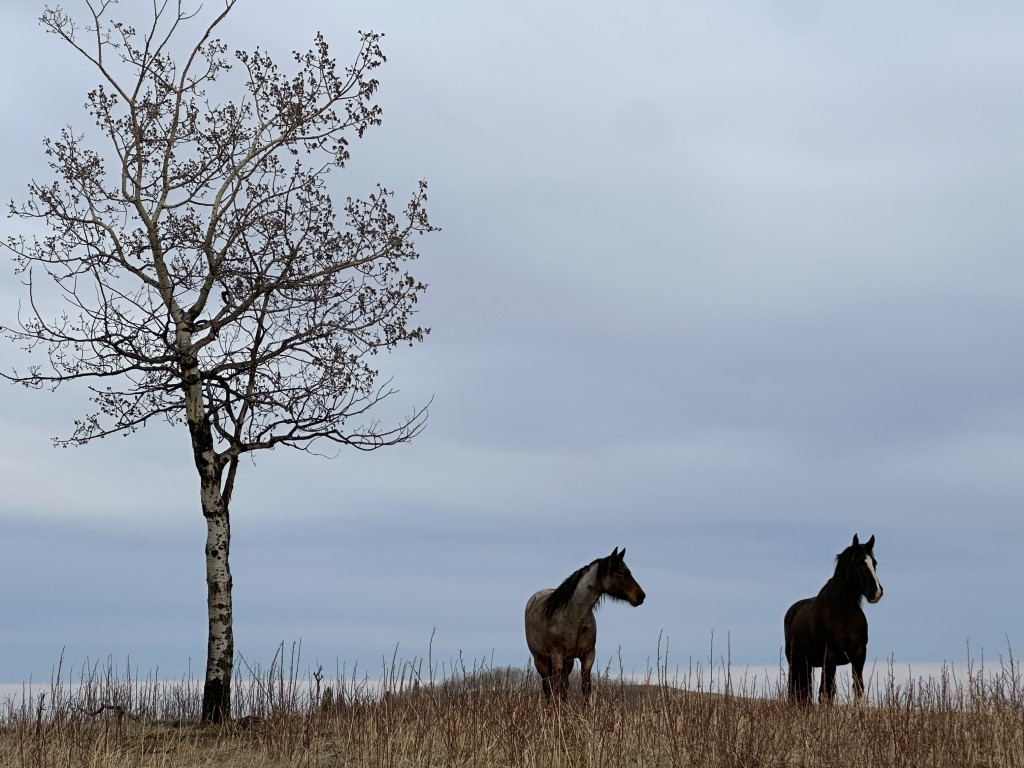
I absolutely love the smell of thawing manure. I hear my urban friends groaning, but after seven frigid months, there is happiness in the aroma of mouldering horse droppings.
I am not the only one who feels this way. All my friends who came from rural backgrounds, experience the tug of the land. They might be doctors, lawyers, or fire chiefs, but the minute the snow melts, they are out in their rubber boots, mucking around in the dirt.
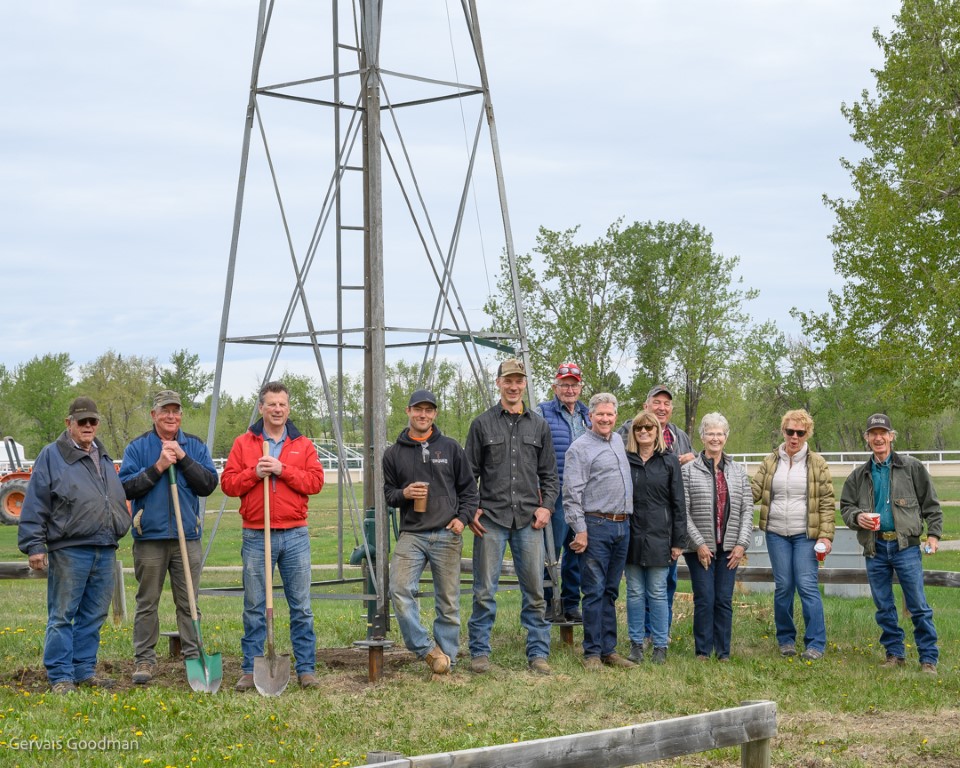
People who grew up on a farm are a fraternity, we understand one another.
I come by my love of rural life honestly, it is generational. I am a direct descendant of the boy second from the left, front row, in the photo below.
Adrian Paton and the “Netterville Boys”, chums at a one-room school near Gravelbourg, Saskatchewan
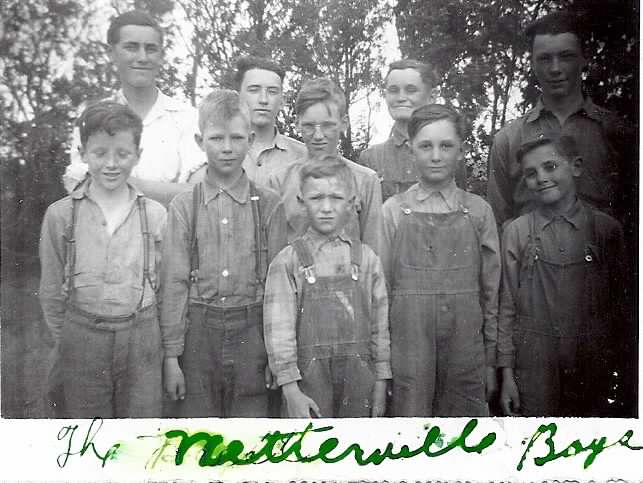
Dad was born on a farm at the physical and chronological epicentre of the Great Depression; 1935, in southern Saskatchewan.
The mind-bending reality of drought and poverty never left Dad. He was so affected by the destitution of his early years; he lived his life as if a return to the hardships of depression-era farming was inevitable. In fact, I think he yearned for it.
I feel the same way, but my farm roots go deeper yet….
The earliest Paton family photos we have, depict our ancestors connected to the land for more than a century.
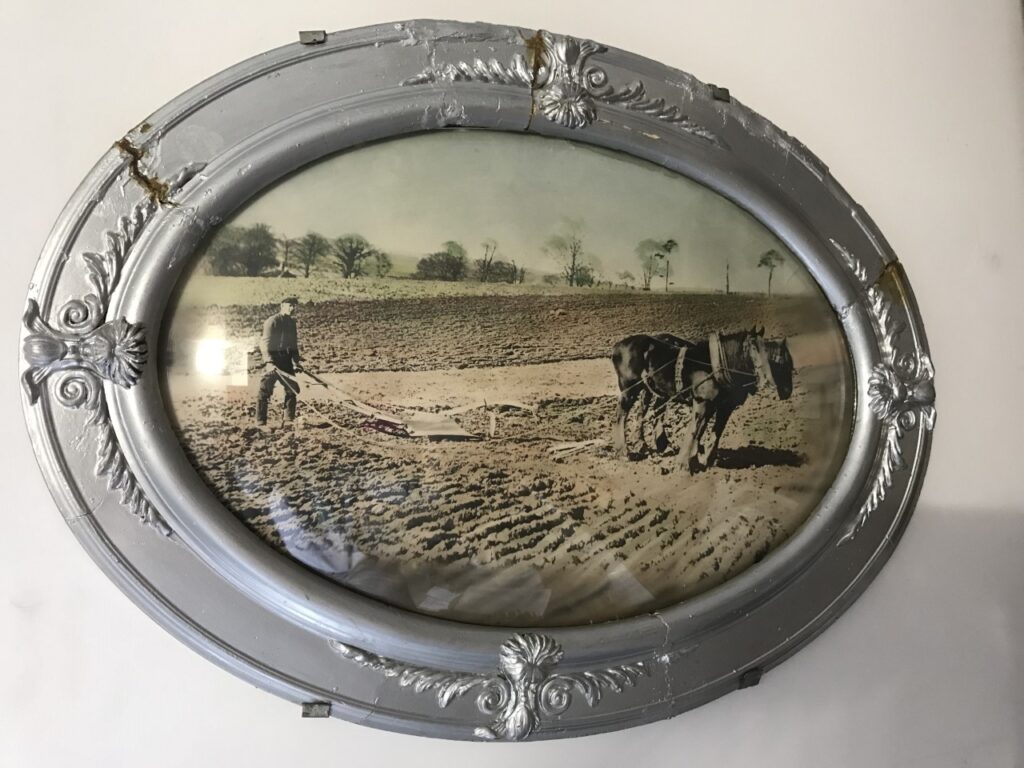
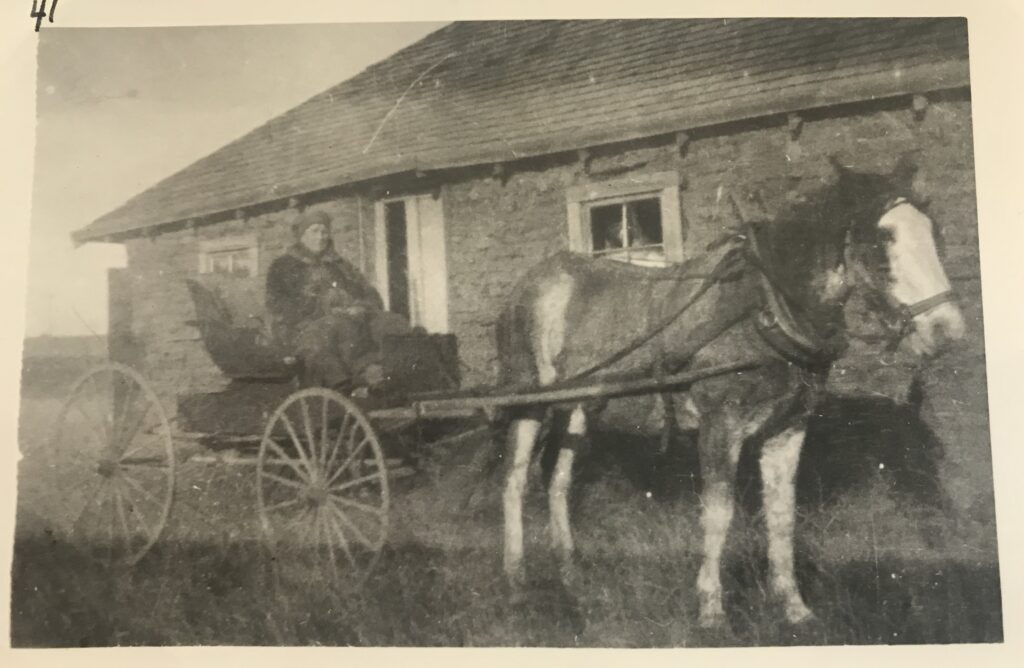
My 2nd Great Grandparents, William Paton behind a two-horse team, plowing a field near Gavinburn, Scotland in about 1900, and Janet Paton in front of the family’s sod house.
“Granny” Paton was a midwife. In this photo taken in 1917, she may have been on her way to deliver a baby at a nearby farm.
In the prosperous years leading up to the Great Depression, the Paton family operated a moderately successful ranch and grain farm.
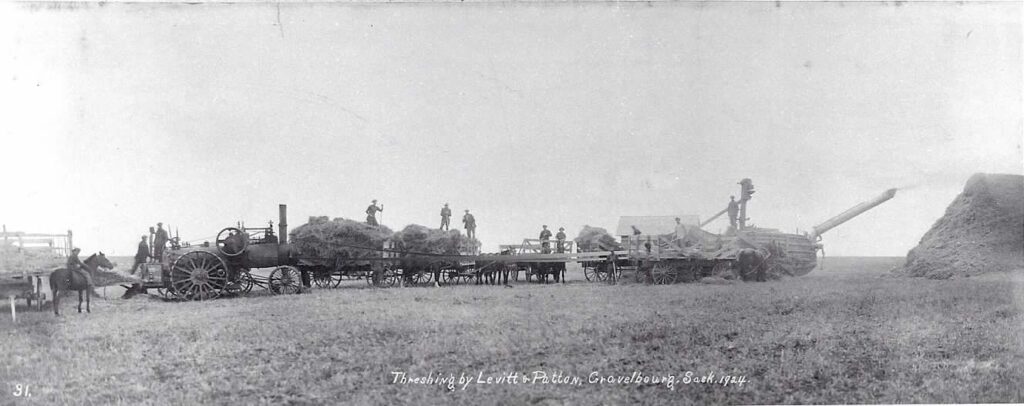
Levitt and Paton’s twelve-man threshing crew, Gravelbourg district, 1924.
Wheat sheaves were transported from the fields to a stationary thresher. Ten men were required to unload wagons and keep the threshing machine operational. Two additional steam engineers maintained the engine and boiler.
In the 1940s, self-propelled combines replaced stationary threshing machines, reducing the harvest crew to one operator and one truck driver.
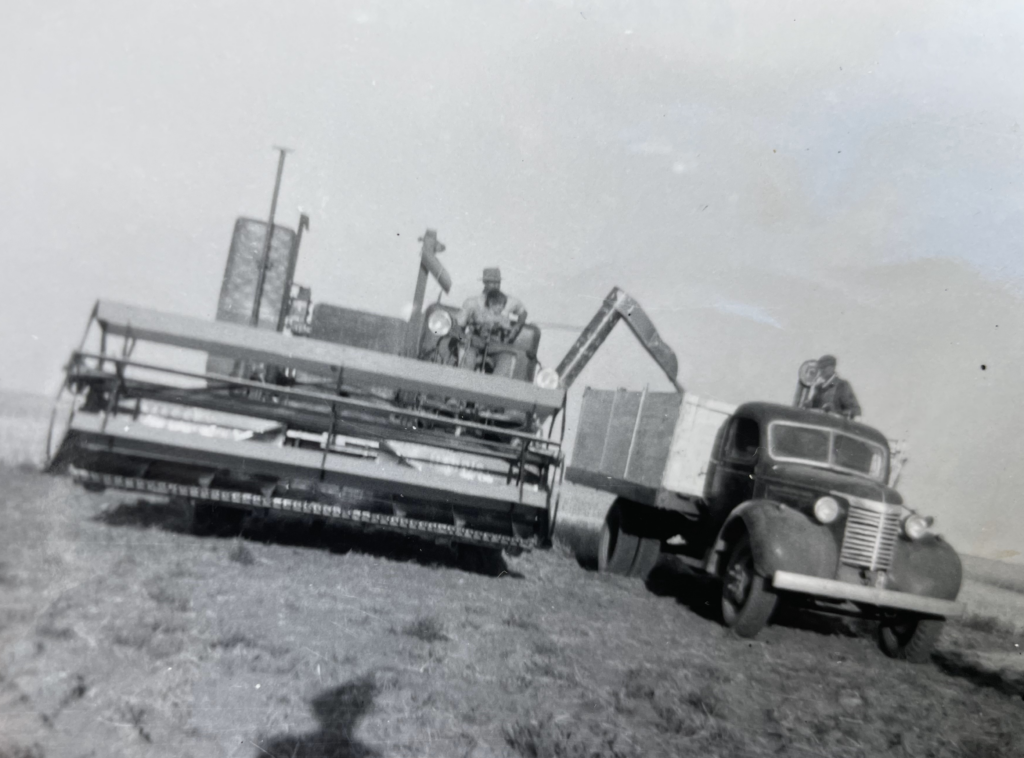
Grandpa Billy and Uncle Earl Paton, harvesting in about 1950.
Great Grandparents William and Jemima Paton, enjoying a picnic lunch in a field in the 1950s.
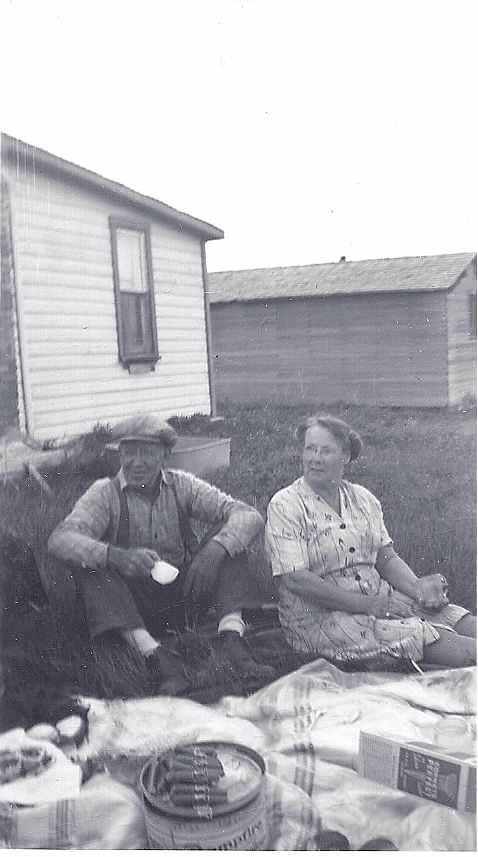
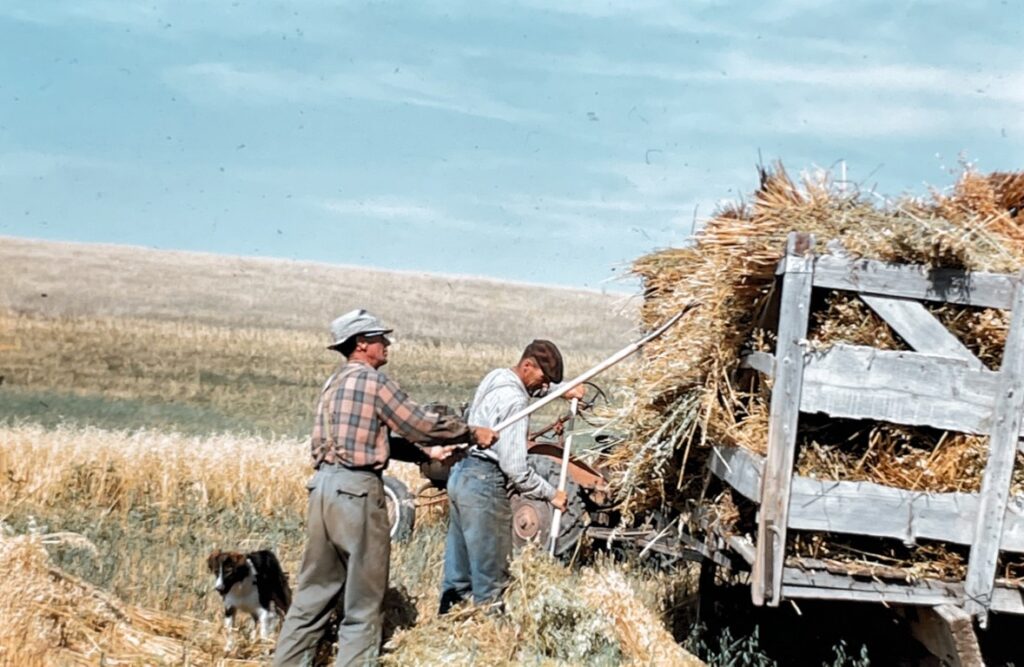
Billy and Earl pitching sheaves of feed oats onto a wagon in the 1960s.
Adrian Paton farming at Arcola, Saskatchewan in the 1970s.
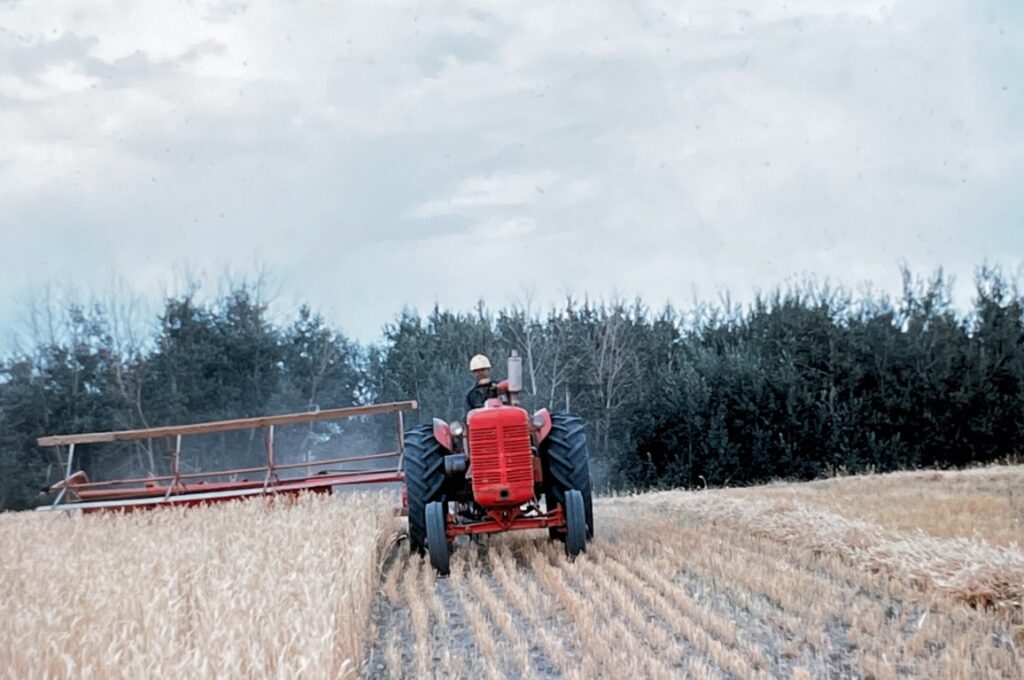
While I grew up on a farm, I knew from a very early age that I wasn’t destined to make a living through agriculture. Dad enlisted me to help him with the farm accounting when I was young. That experience taught me two things: a) there was not much money to be made farming and, b) I discovered that I had an aptitude for financial analysis, an attribute that led me to a career in industrial finance.
I left the farm after high school, but …
…the farm never left me.
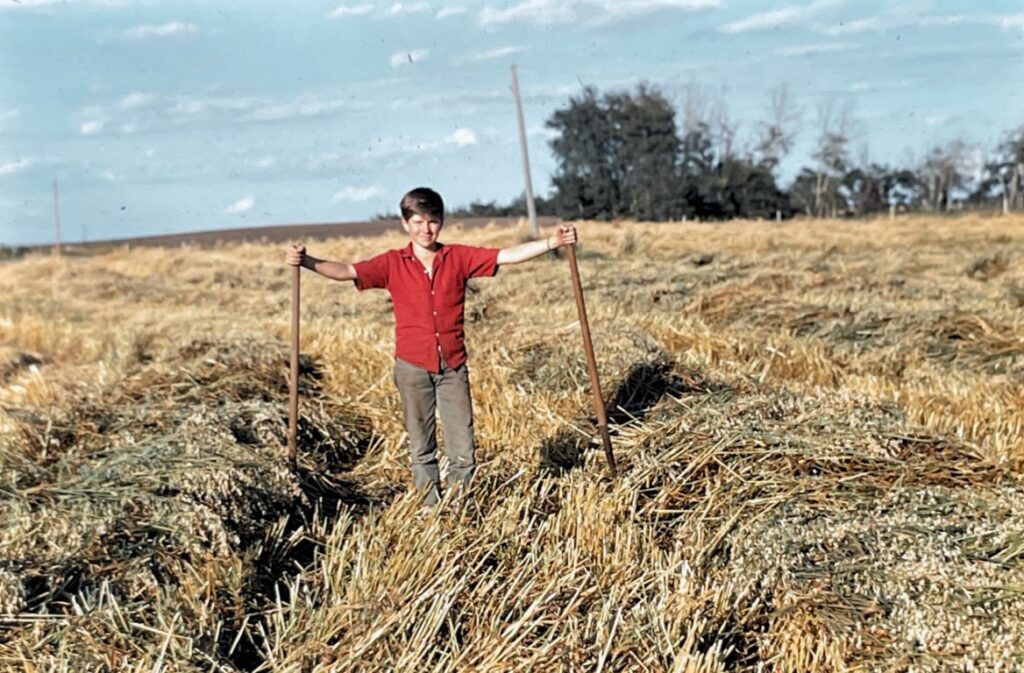
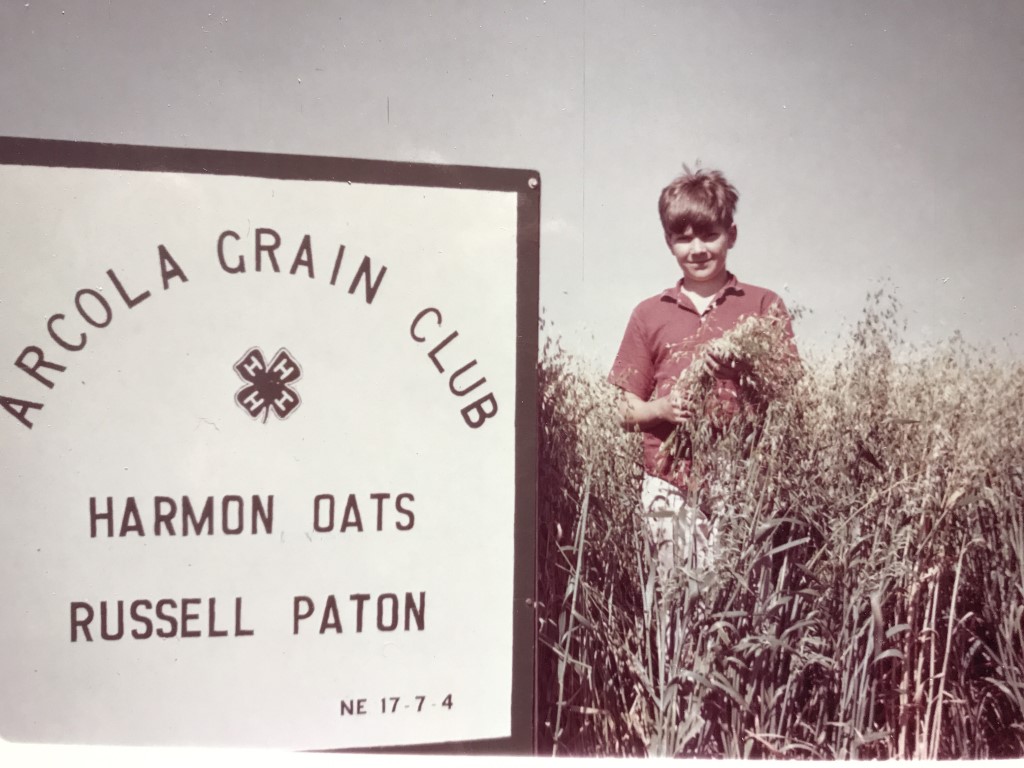
Arcola 4-H Grain Club, 1970s.
Grandpa Billy had an Allis-Chalmers Model “B” tractor. He used “Little Allis” for everything from field work to hauling drinking water for the farm. I found a restored AC “B” at an auction a few years ago and decided I needed to own it.
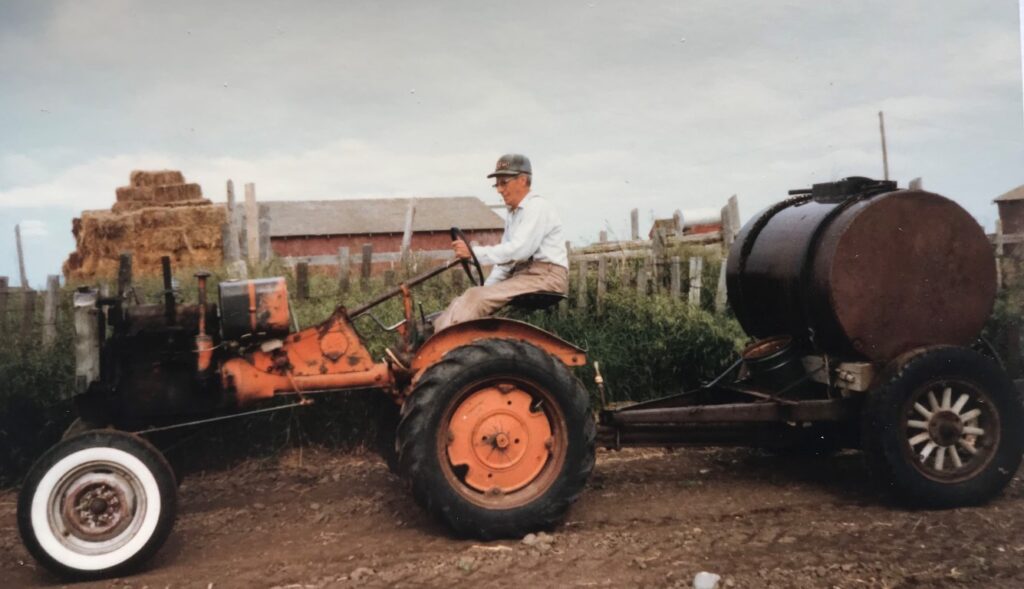
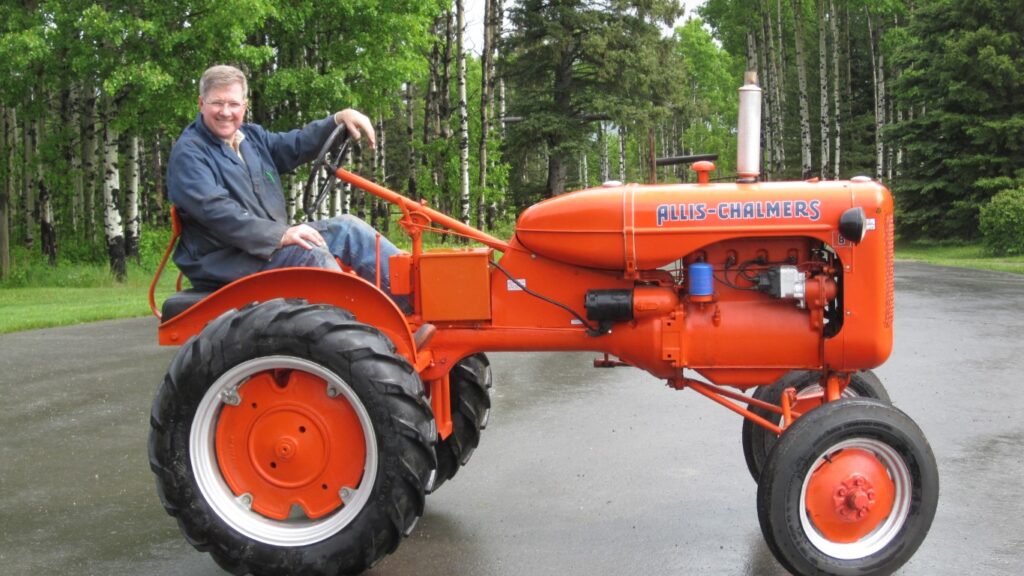
The AC “B” is a made-for-Saskatchewan tractor. It has independent hand brakes with levers on either side of the seat. When rolling down a hill or loading onto a trailer, it is necessary to pull both brakes at the same time, which leaves zero hands for the steering wheel. This is not a problem in Saskatchewan where the land is flat, but in the foothills of Alberta, only farmers with three hands should own an Allis-Chalmers Model “B”.
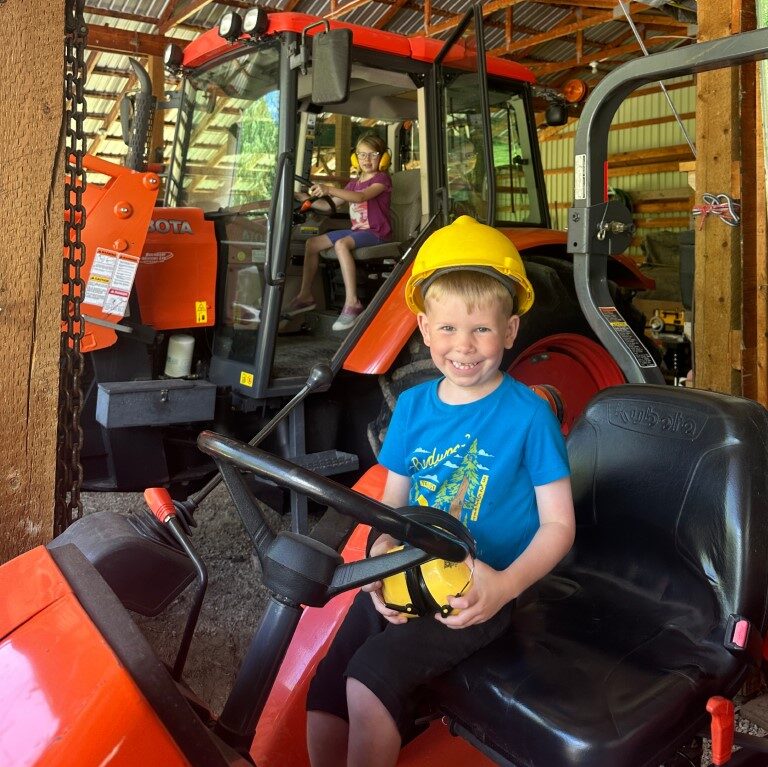
Another generation of aspiring farmers. Grand niece/nephew Sloan and Remy Paton
Like and Subscribe…
To join the WellWaterBlog audience, scroll down and add your e-mail address to the growing list. You will receive a notice each time a new article is posted and nothing else – No Advertising, No Solicitations, No B.S., Just Fun.
Several of the photos in this post are courtesy of James R Paton.


Keith MacDonald
It’s wonderful to have all those old photos way before your time. And the ones since you were born must bring back GREAT memories.
Russ Paton
Yes, we are fortunate to have all the old photos. They always prompt memories or nostalgia.
Barbara E Segal
I still love farm tasks. This spring my granddaughter & I worked to create small rivers in the parking lot to drain excess water. A job I loved on the farm.
Russ Paton
Yes, the most important spring job is making it come faster!
Autumn Downey
Great history and article!
Russ Paton
Thank you. That article wrote itself!